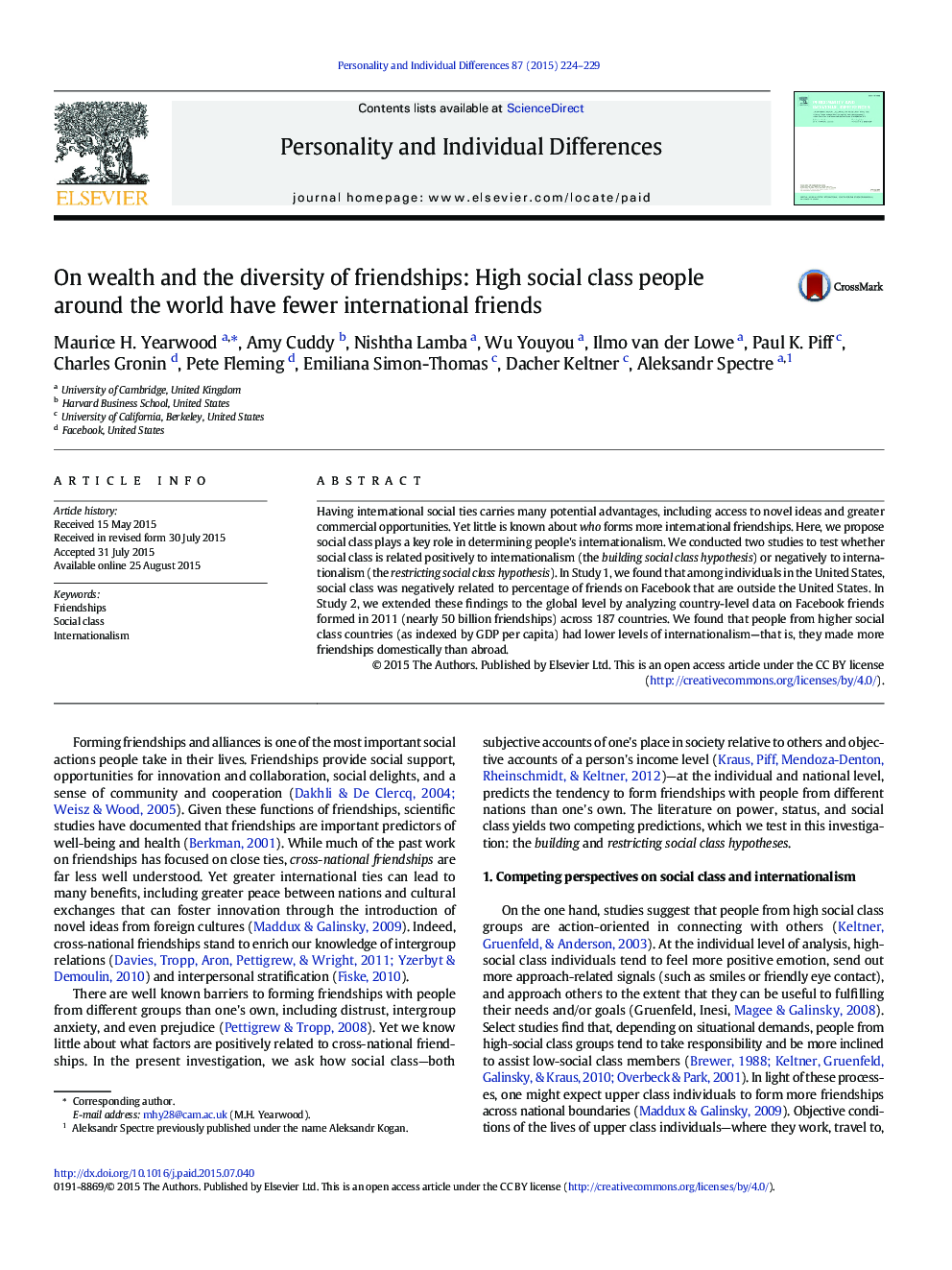| Article ID | Journal | Published Year | Pages | File Type |
|---|---|---|---|---|
| 7251018 | Personality and Individual Differences | 2015 | 6 Pages |
Abstract
Having international social ties carries many potential advantages, including access to novel ideas and greater commercial opportunities. Yet little is known about who forms more international friendships. Here, we propose social class plays a key role in determining people's internationalism. We conducted two studies to test whether social class is related positively to internationalism (the building social class hypothesis) or negatively to internationalism (the restricting social class hypothesis). In Study 1, we found that among individuals in the United States, social class was negatively related to percentage of friends on Facebook that are outside the United States. In Study 2, we extended these findings to the global level by analyzing country-level data on Facebook friends formed in 2011 (nearly 50 billion friendships) across 187 countries. We found that people from higher social class countries (as indexed by GDP per capita) had lower levels of internationalism-that is, they made more friendships domestically than abroad.
Related Topics
Life Sciences
Neuroscience
Behavioral Neuroscience
Authors
Maurice H. Yearwood, Amy Cuddy, Nishtha Lamba, Wu Youyou, Ilmo van der Lowe, Paul K. Piff, Charles Gronin, Pete Fleming, Emiliana Simon-Thomas, Dacher Keltner, Aleksandr Spectre,
